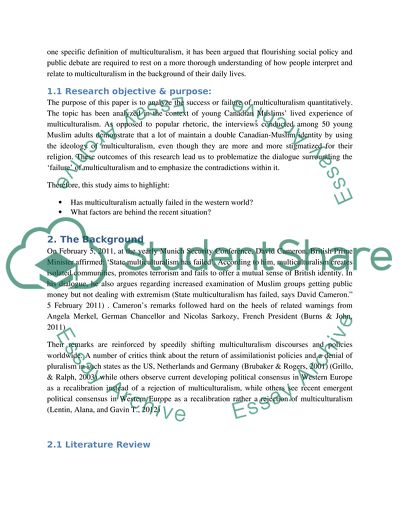Cite this document
(The Crisis of Multiculturalism in Europe Research Paper Example | Topics and Well Written Essays - 1750 words, n.d.)
The Crisis of Multiculturalism in Europe Research Paper Example | Topics and Well Written Essays - 1750 words. https://studentshare.org/sociology/1811566-qualitative-research
The Crisis of Multiculturalism in Europe Research Paper Example | Topics and Well Written Essays - 1750 words. https://studentshare.org/sociology/1811566-qualitative-research
(The Crisis of Multiculturalism in Europe Research Paper Example | Topics and Well Written Essays - 1750 Words)
The Crisis of Multiculturalism in Europe Research Paper Example | Topics and Well Written Essays - 1750 Words. https://studentshare.org/sociology/1811566-qualitative-research.
The Crisis of Multiculturalism in Europe Research Paper Example | Topics and Well Written Essays - 1750 Words. https://studentshare.org/sociology/1811566-qualitative-research.
“The Crisis of Multiculturalism in Europe Research Paper Example | Topics and Well Written Essays - 1750 Words”. https://studentshare.org/sociology/1811566-qualitative-research.


